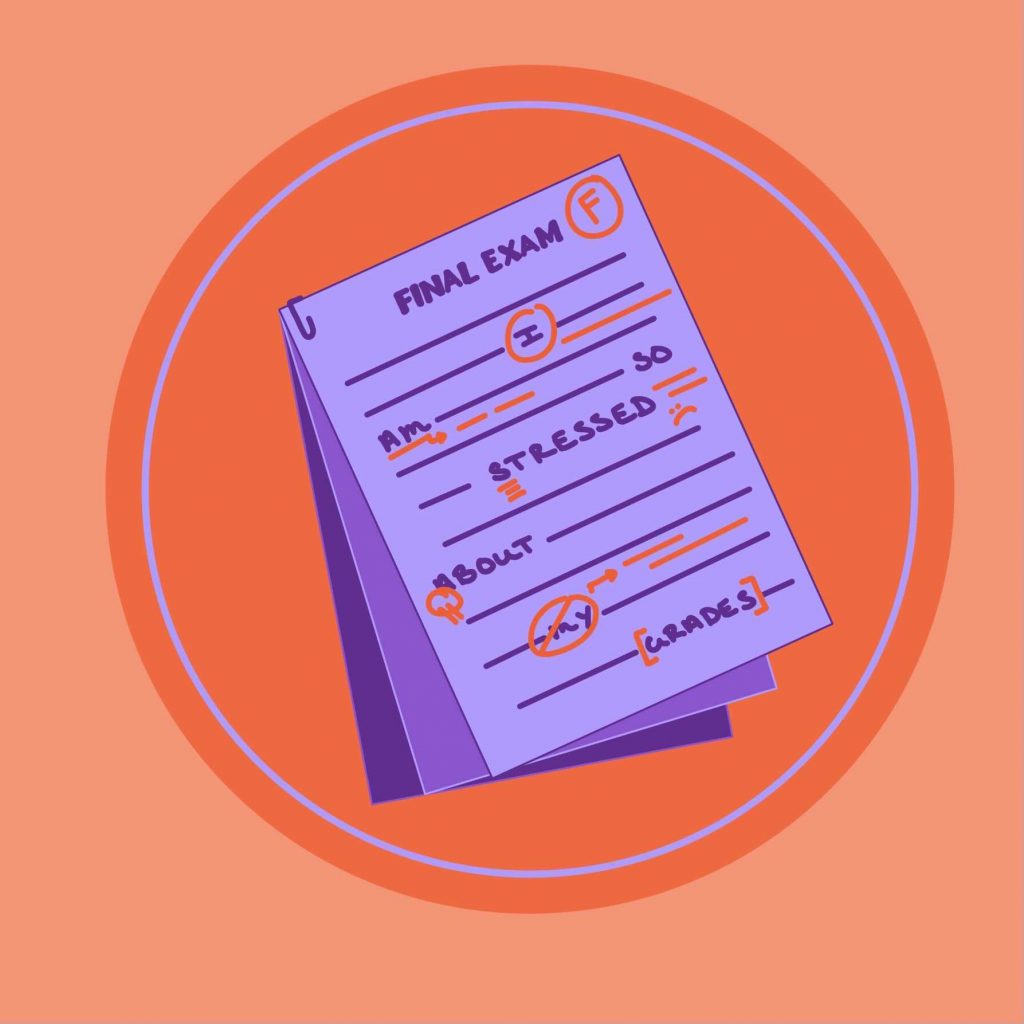
(Emory Wheel / Alison Barlow)
What student hasn’t experienced some form of the ever-invasive academic stress creeping into their lives and affecting their mental well-being during their time in college?
Colleges serve as bastions for propping a competitive culture that pits students against students and degrades mental health without offering much in return. Universities take a business-esque approach that cuts the soul out of education, exposing students to different subjects, challenging perspectives and existential questions, all to create knowledgeable members of society. Emory is no exception to this phenomenon.
To bring college academics back to their core duty, universities ought to reduce factors that prioritize the school’s image over students’ mental health. To do so, institutions need to reduce stress culture by dispelling the myth that students must be top performers, reforming antiquated grading schemes and taking to heart the lessons learned in pandemic teaching.
Progressively, greater awareness of students’ mental health crises within the last few years, especially during the pandemic, has sent colleges scrambling to adapt and provide resources. Often these include measures such as increased hours for mental health services, crisis hotlines and teaching coping skills. Yet, admittedly they’ve missed the mark. Most college students continue to cite academic stress and a need to maintain a sense of competitiveness as key sources of stress. To remedy such, colleges ought to cut back on promoting cutthroat environments that push students to be nothing less than perfect.
For instance, college environments push students to overcommit to clubs, vie for the best GPA and gear them up for the workforce. While none of these are necessarily terrible, they should be done in moderation with respect to time and individual sanity. Some colleges have made gearing up for the workforce a priority over making varied educational outlets, such as Howard University (D.C.) phasing out its Classics department. Instead, universities should be encouraging students to discover themselves by experimenting with classes outside their major and joining clubs for pleasure. By taking the journey of academics slowly, students will be able to get a grounded sense of what it means to cultivate a lifelong state of learning — there won’t likely be another chance like it again.
Another component negatively impacting students’ mental health are the ways we assess students’ capacity to retain knowledge. At Emory, a healthy portion of courses use two midterms and a final exam as a set point to weigh a student’s performance in class. However, such a system is reliant on using small windows of opportunity to exhibit student skill, which leads to cramming and added stress that fails to benefit the student intellectually. Many of these exams are often catch-alls that fall short of accounting for different learning styles or creative ways to display knowledge. Instead, colleges should favor smaller cumulative assessments that could show the student’s growth within the course, lower stress and yield better results.
During the pandemic, some Emory professors made their classes more accessible by changing grading schemes and class designs to use small papers and group projects over the traditional system. Such changes to adapt to student conditions are noble, and this mentality should persist into future semesters irrespective of the return to in-person teaching. The point of academics is to inspire students to want to learn, not cram the night before an exam to get a decent grade.
Universities, including Emory, are failing their core responsibilities to nurture and protect students’ minds. Instead, these colleges have sidelined these responsibilities to promote frivolous markers of success and elitism that serve as figures to boast about in brochures at the cost of their student’s mental health. If college administrators and professors are serious about aiding student mental health, they should consider different resources to offer and adapt the nature of academics to fit with the times.
Demetrios Mammas (23C) is from Atlanta, Georgia.
Demetrios Mammas (he/him 23C) is from Atlanta, Georgia, majoring in political science and psychology. When he’s not editing or writing op-eds and reviews for the Wheel, he can be found helping out student legislators as a College Council Chief of Staff and volunteering at Emory’s nearby Wesley Woods Senior Living facility. In his free time, he enjoys playing video games, learning languages, being a Netflix fanatic, reading Arthurian legends, going kayaking and practicing guitar.



